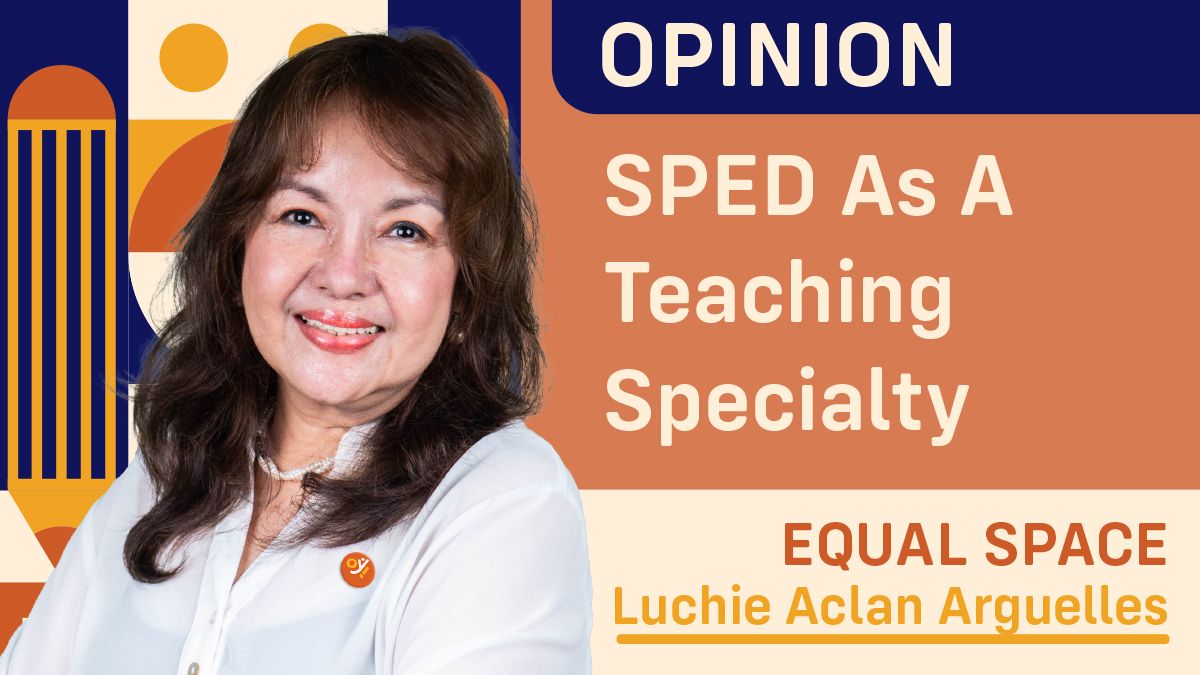When one of my father's cousins from a faraway island came to visit us, his intention was to find a place where his only daughter will stay after graduating from high school. Our ancestral house had lots of spare rooms that accommodated many cousins who came to the city to study, as I recall.
"What course is she interested in taking up?" My father asked.
"Ay, mag-teacher na lang siya sa elementary. Tutal hindi naman sya gaano katalino at di magastos na kurso ito, " uncle retorted. ("She will take up Elementary Education since she is not that bright. It doesn’t cost much, anyway.")
In the 60s and 70s, this was the goal: to earn a college degree and gain independence. This was a statement usually uttered by not-so-well-off parents.
There was no LET then and people didn’t know better.
But now, the backward mindset of taking a Bachelor in Education for people who are “not so intelligent” has changed from the time the Professional Regulation Commission (PRC) began administering the Licensure Examination for Teachers (LET) in the Philippines. Starting in 1996, graduates who wished to "engage in teaching, supervision, and administration of all elementary and secondary schools" were required to pass the LET.
We now realize that effective teaching requires exceptional academic and emotional intelligence.
Greatest Impact
Education as a college course is actually a great choice.
It is an incalculably challenging profession. An elementary or high school (up to Grade 10) teacher has the greatest impact — usually positive — on a student’s life. Rewards may not be that great at the start, but it is definitely as gratifying as it is fulfilling.
The teaching process educates and guides students. For their growth and development, teachers play a major role in communicating information, shaping young minds, cultivating critical thinking, and developing their skills.
Teaching, per se, is not just what educators do. Aside from academic requirements, they also play as a role model in mentoring, reinforcing the youths’ emotional and social development. The students' experience and interaction in school also prop up their ability to inspire and motivate others.
With their patience and determination, teachers are committed to impart lessons to last a lifetime.
SPED Teachers
One of the most challenging and remarkable specialties in teaching is to deal with and teach children with special needs.
Special education (SPED) teachers who are tasked to work with children on the spectrum (or autistic) or other special needs face demanding and tough situations and extraordinary hurdles.
SPED teachers truly impact the lives of special learners. Faced with such travails, the impression they leave on the minds of the differently-abled students extends to the teacher's psychological and, oftentimes, physical realms.
For example, students who are diagnosed with Autism Spectrum Disorder (ASD) exhibit an array of behavioral patterns as they have difficulty in social interactions, delayed verbal communications, and repetitive behaviors.
Managing a classroom with such students could be more than challenging in that it may necessitate forming an emotional connection with an ASD student.
Emotionally taxing as it is, the teacher could develop so much sympathy for the child's struggle with communication or socialization that a high level of care and attention on her part needs to be met.
The SPED teacher constantly adapts her teaching strategies to fit each student's needs.
Batino SPED Center
The Quezon City Government is commendable in setting up Batino Elementary School SPED Center, a specialized center in Barangay Amihan, Project 3, established in 1978.
It has well-structured classrooms that are friendly to children with special needs. What is challenging is its unique terrain and a very narrow entry and exit point from Aurora Blvd. and Batino Alley. Only one vehicle can pass through at a time, that is why they have guards on both ends.
Aside from being an elementary school for the low-income residents of Quezon City, they also cater to children who are hearing and visually-impaired, intellectually disabled, and children with autism.
As these children grow in number, developing the SPED Center was an aspiration of the QC Division of City Schools as the government's commitment that "all children must be given the opportunity to realize their fullest potentials and does not exclude exceptional children."
Batino is one of the very few of its kind in Metro Manila. At the onset, the school admitted special classes pupils from nearby towns. There are so many clamoring to enroll their children here but priority is given to "residents of Quezon City."
Its website specifies "[i]ntegrating the special children into normal way of life and activities among the regular pupils is the essence of the school’s philosophy. The intellectually disabled children who can qualify for mainstreaming/inclusion are integrated in the regular classes."
The school deserves drawing attention and getting funding from international institutions with its advocacy.
A big salute to the Quezon City government and the DepEd City Schools for Batino.
(email opinyon.luchie@gmail.com, luchiearguelles@yahoo.com)
#WeTakeAStand #OpinYon #OpinYonColumn #EqualSpace #ColumnbyLuchieAclanArguelles
